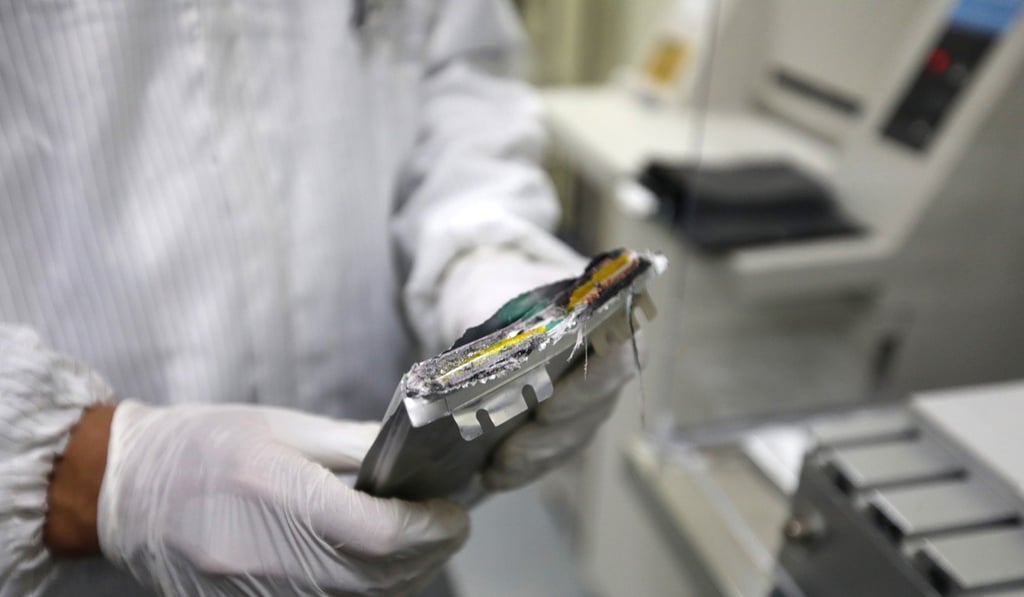How your smartphone battery can power the re-industrialisation of Hong Kong’s economy – and the entrepreneurial brothers who want to make it happen
- Eric Wong, the man behind Fotomax, has come out of retirement to work on a process for reusing lithium-ion batteries
- The green economy is a growth industry which could help the city combat the massive amount of waste it creates daily

Entrepreneur Eric Wong Sing-hung sees a waste crisis on the horizon and has a big idea to solve it.
Smartphone in hand, the 70-year-old taps the back of its case – batteries. Specifically, the rechargeable lithium-ion ones that power almost every mobile device, laptop and electric vehicle in the world.
Seeing a dearth of safe, environmentally friendly and cost-effective solutions to recycle or dispose of depleted batteries and the business opportunity this presented, he had pulled himself out of retirement.

“Everyone’s talking about new energy, batteries and protecting the Earth, but whether its production or recycling, the pollution created from these processes can be worse than that of the fossil fuel industry,” says Wong, who made his name as the founder of Fotomax, Hong Kong’s largest photofinishing chain.
“I thought, can we produce a battery that is not polluting, and recycle it when it is depleted, in a non-polluting way too?”